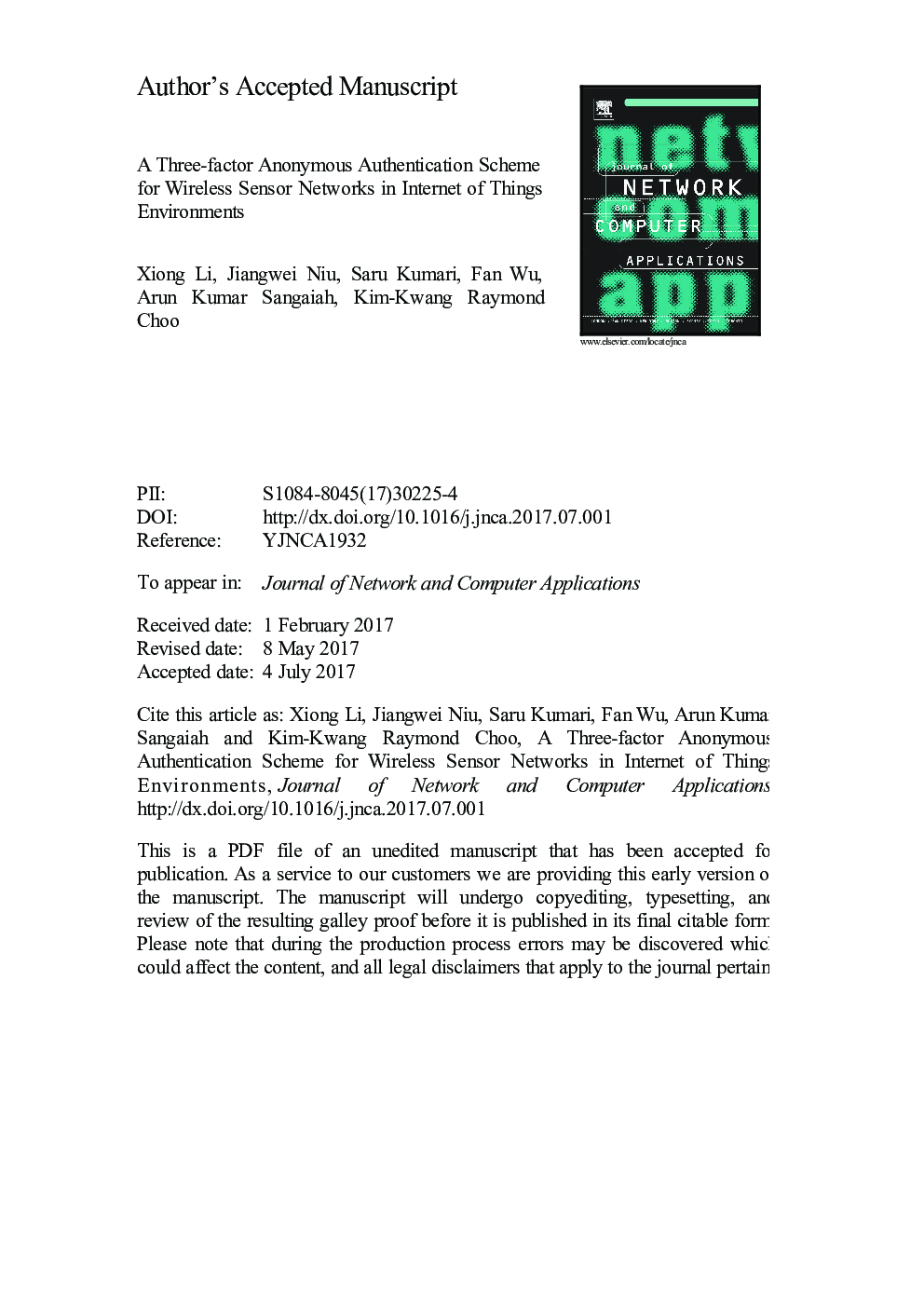| Article ID | Journal | Published Year | Pages | File Type |
|---|---|---|---|---|
| 6884881 | Journal of Network and Computer Applications | 2018 | 28 Pages |
Abstract
Internet of Things (IoT) is an emerging technology, which makes the remote sensing and control across heterogeneous network a reality, and has good prospects in industrial applications. As an important infrastructure, Wireless Sensor Networks (WSNs) play a crucial role in industrial IoT. Due to the resource constrained feature of sensor nodes, the design of security and efficiency balanced authentication scheme for WSNs becomes a big challenge in IoT applications. First, a two-factor authentication scheme for WSNs proposed by Jiang et al. is reviewed, and the functional and security flaws of their scheme are analyzed. Then, we proposed a three-factor anonymous authentication scheme for WSNs in Internet of Things environments, where fuzzy commitment scheme is adopted to handle the user's biometric information. Analysis and comparison results show that the proposed scheme keeps computational efficiency, and also achieves more security and functional features. Compared with other related work, the proposed scheme is more suitable for Internet of Things environments.
Related Topics
Physical Sciences and Engineering
Computer Science
Computer Networks and Communications
Authors
Xiong Li, Jianwei Niu, Saru Kumari, Fan Wu, Arun Kumar Sangaiah, Kim-Kwang Raymond Choo,
